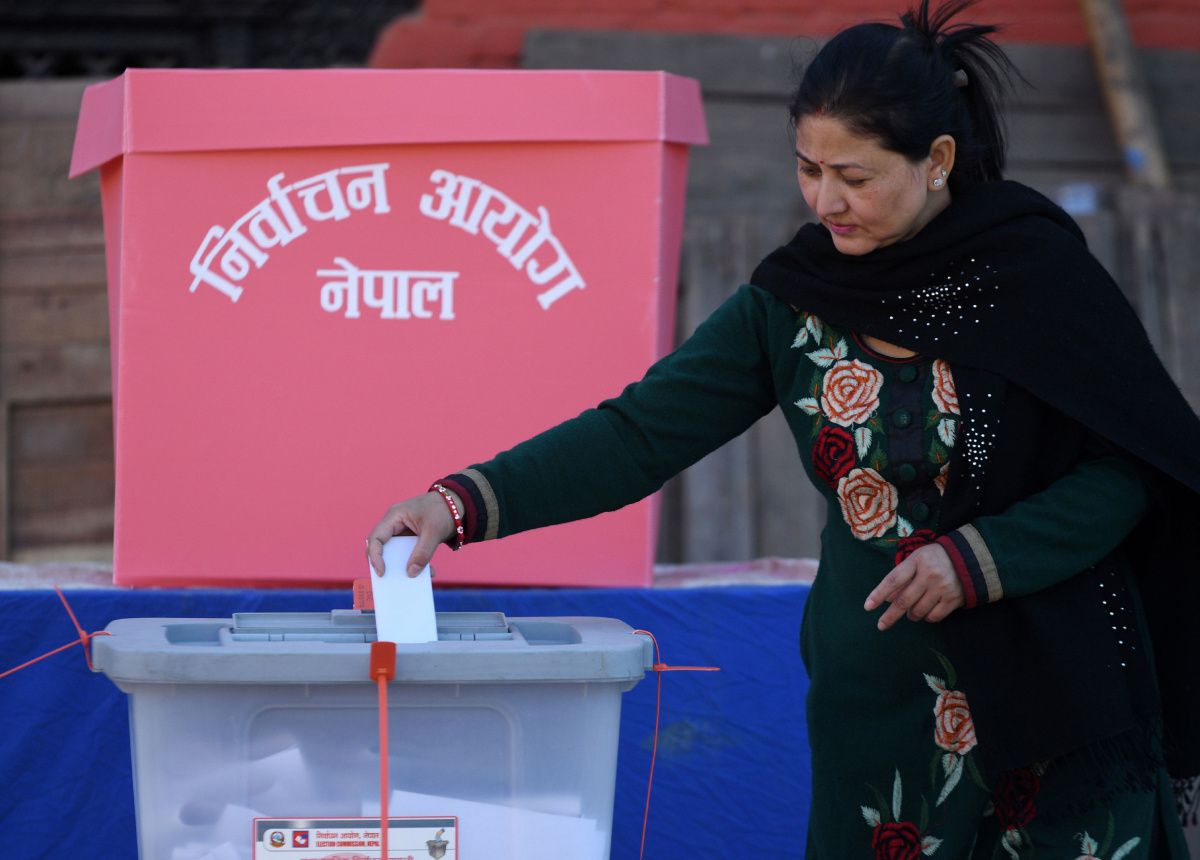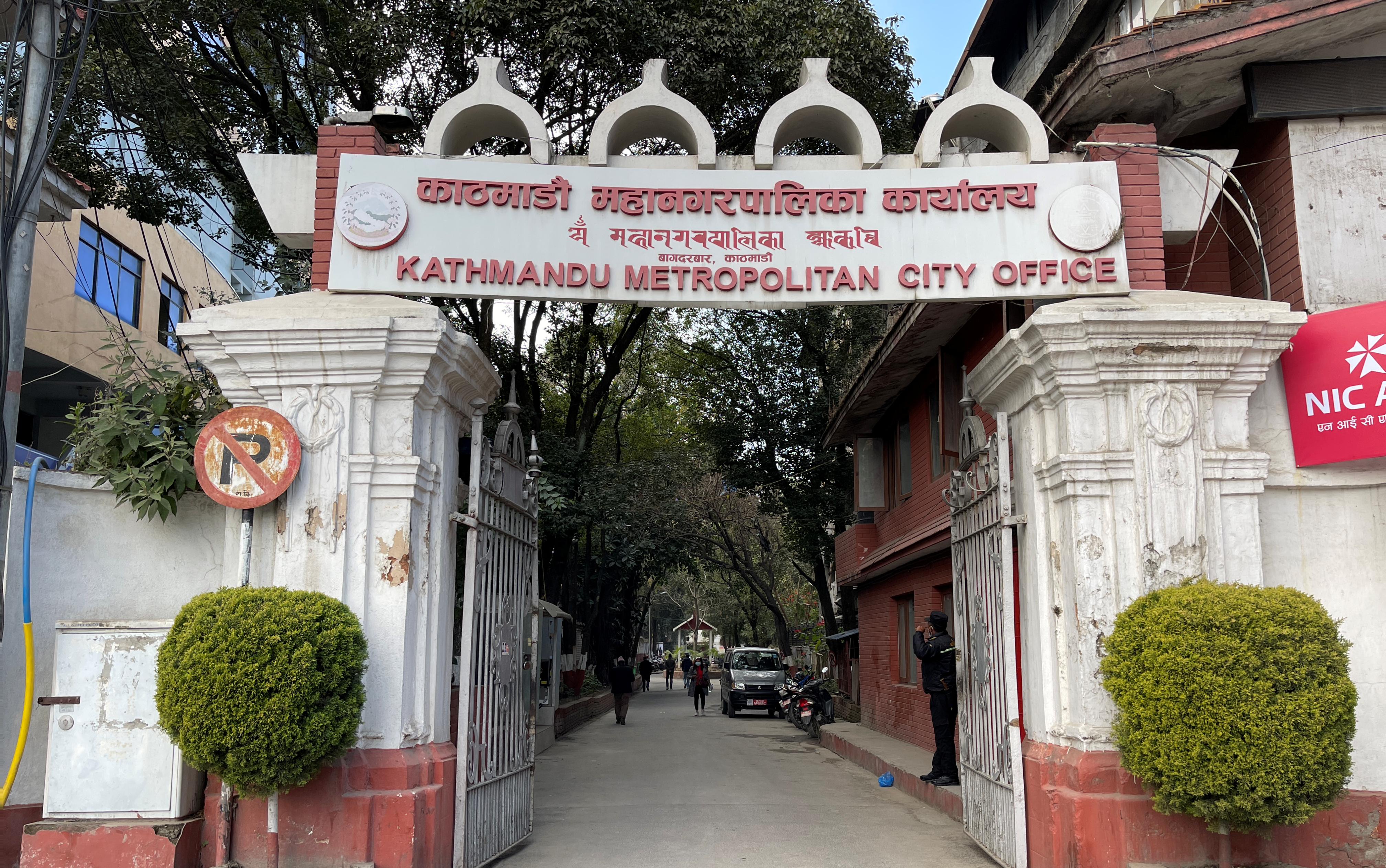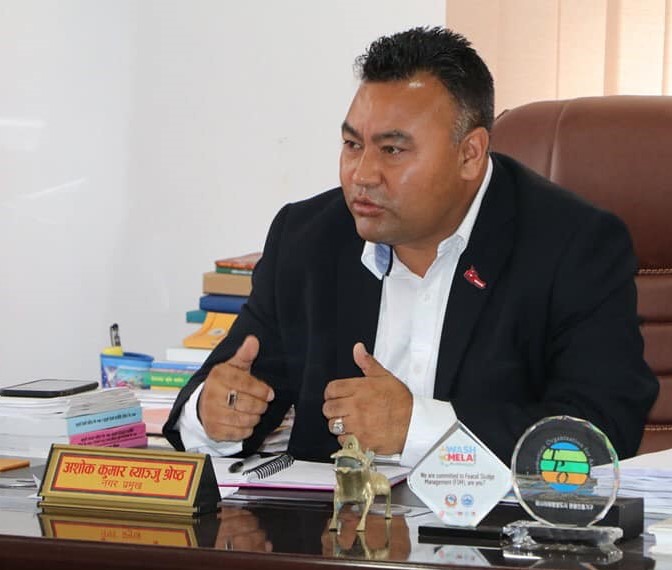What if… (local) elections cannot be held on time?

It is official. The Election Commission (EC), the constitutional body mandated for holding elections, has categorically told the government that the term of local governments expires on 19 May 2022. But there are legal ambiguities on the elections’ timing. According to the Local Level Election Act 2017, elections for the heads of local governments must be held two months before the expiry of their tenure.
But Article 225 of the constitution states, ‘the term of a village assembly and of a municipal assembly shall be five years from the date of election and another leadership shall be elected not later than six months of the expiration of such a term.’
Even though the constitution has given an additional six months in which to hold local elections after the term of the local bodies ends, the EC and observers cite a loophole in the constitution—the national charter is mum on the political vacuum that could emerge thereafter.
President of Municipal Association Ashok Kumar Byanju (Shrestha) rules out the possibility of a political vacuum, as the current leadership will continue until new office-bearers are elected. The commission has suggested that the federal government hold local elections two months prior to the expiry of the term to ensure there is no political vacuum after May 19. The EC has proposed single-phase local elections on April 27. But if there are logistical challenges, the commission says the elections could also be held in multiple phases.
Former Election Commissioner Birendra Mishra says the six-month grace period provided by the constitution will be applicable only in emergency-like situations when elections will have to be put off. “It does not mean parties can hold elections six months after the expiry of local bodies’ terms. It rather means the tenure of incumbent heads could be extended by a maximum of six months,” says Mishra.
To complete preparations, election dates must be announced at least 100 days in advance. That means now is the time to announce elections if the political parties are to honor the EC proposal. However, given their lack of readiness, chances of such a timely announcement are bleak.
 AP
AP
Komal Prasad Dhamala, Assistant Spokesperson at the EC, says elections should be completed before May 19 to ensure timely replacement of old representatives by new ones. He says the commission has conveyed to Prime Minister Sher Bahadur Deuba that elections must be held two months before the expiry of local bodies’ term.
Though the EC has been proactively, it cannot move ahead without a political consensus. As the constitution does not give the commission the rights to announce dates, the fate of local elections largely depends on the intent of the ruling coalition as well as opposition parties.
At the very least, consensus between the coalition and main opposition CPN-UML is a must. Parties on both sides of the aisle are likely to agree on proposed dates only if they reckon electoral outcomes will be in their favor. Nepali political parties have a tendency of putting off elections if they fear a loss.
Federal affairs expert and National Assembly member Khim Lal Devkota says contradictory provisions in the constitution and electoral laws are unhelpful. “Unlike the previous local bodies, this time around elections of local governments must be held with an urgency before the expiry of their current term,” says Devkota. The spirit of the constitution also envisages that local elections be held before elections for provincial and federal governments.
Analysts fear a vacuum in local bodies, as was the case from 1997 to 2018, following the failure to hold timely elections. “A repeat of such a failure shall have grave repercussions on the functioning of local bodies, which are sovereign entities according to the constitution,” says Devkota.
Others also reckon the no-election situation will be messy. Compared to previous local bodies, the new constitution has granted more autonomy to local governments including on budget-allocation. “In the absence of political leadership, local governments cannot function effectively,” says Mishra.

The major political parties are yet to consult among themselves on the three-tier elections. Perhaps they can now focus more on elections after completing their respective General Conventions (GCs). The commission is preparing to meet parties regarding the same.
Targeting local elections, the EC has updated voter rolls with the inclusion of around a million new voters. The local governments are completing their first tenure after the adoption of the new constitution in 2015 that provisioned a three-tier government structure. The first tenure seemed like an experiment and a period of learning-by-doing.
Still, dozens of local governments continue to face multiple hurdles, and many have failed to bring their budget on time. Observers say local elections should not be deferred, if only to ensure a level of maturity in the functioning of local governments.
This time, as compared to the last local elections in 2017, the atmosphere is also more conducive. In 2017, mainly Madhes-based parties were reluctant to head into elections until their demands were fulfilled, which is why local elections had to be held in multiple phases. The last phase was in Madhes. Now, the Madhes-based parties do not have any reservation about local elections. Even the Netra Bikram Chandra-led Maoists, which has since 2013 been sternly opposing all types of elections, has joined peaceful politics, even though the party itself is unlikely to participate in elections.
Similarly, CK Raut’s party, which had been campaigning for the secession of Madhes, has joined peaceful politics. Therefore, if major parties are committed to timely elections, the coast is clear for a single-phase local election. Smooth holding of local body elections, in turn, will also pave the way for elections of federal and provincial parliaments.
On the other hand national politics could plunge into another bout of uncertainty if the elections can’t be held in line with the legal and constitutional obligations. There are 753 local governments: six metropolitan cities, 11 sub-metropolitan cities, 276 municipalities and 460 rural municipalities. In the last local body election held in 2017, CPN-UML emerged as the largest party followed by Nepali Congress, CPN (Maoist Center) and Madhes-based parties.
Also read: What if… the 2015 constitution had been delayed?
Constitution has not envisaged vacuum in local bodies
Ashok Kumar Byanju (Shrestha)
President, Municipal Association of Nepal

The constitution is the supreme law of the land that defines how a government is formed and run, so we should move ahead as per its provisions. Our constitution states that elections of local governments shall take place within six months of the expiry of their term.
The Local Election Act has somehow narrowed that space. Heads of local governments have the mandate to rule in a full-fledged manner for five years, so they must be allowed to complete their tenure. Holding elections before five years amounts to a violation of the constitutional rights of local governments.
There would be no political vacuum after the expiry of terms as incumbent leaderships will continue to function until a new leadership replaces it. Our constitution has not envisaged a leadership vacuum in local governments. For instance, at the federal level, even after the resignation of the Prime Minister, he/she continues to serve until a new PM is elected; the same provision is applicable to local governments.
We should not create a vacuum as it may lead us to a state of uncertainty that we witnessed post-1997 when the tenure of the elected leaders expired and they left office. But there was no one to replace them. As a result, local bodies had to be run without elected representatives for nearly two decades. That undemocratic practice should not be repeated.
The constitution has not envisaged failure to conduct timely local elections. Parties should not see elections of local governments through the narrow prism of their win or loss. They should rather think about their larger public accountability. Failing to conduct timely elections will rightly be seen as a collective political failure.
related news
What if… the two-day weekend was made permanent?
May 29, 2022, 2:39 a.m.
What if… the left electoral alliance is revived?
April 1, 2022, 9:22 p.m.
What if… the fast track project was completed on time?
March 18, 2022, 9:32 p.m.
What if… Kathmandu valley had a metro service?
March 5, 2022, 5:34 p.m.
What if… voters got to reject candidates?
Feb. 18, 2022, 9:54 p.m.
What if… we didn’t need the National Assembly?
Feb. 6, 2022, 12:06 a.m.
What if… Kathmandu had more open spaces?
Jan. 22, 2022, 5:34 p.m.
What if… the 1923 Nepal-Britain treaty was not signed?
Dec. 25, 2021, 7:37 a.m.










Comments